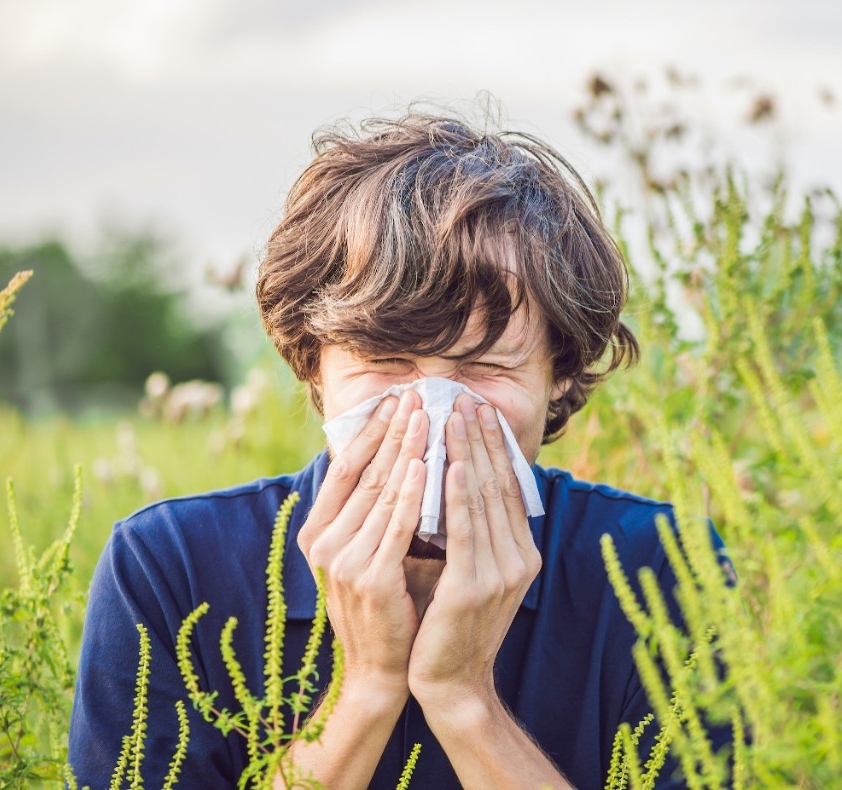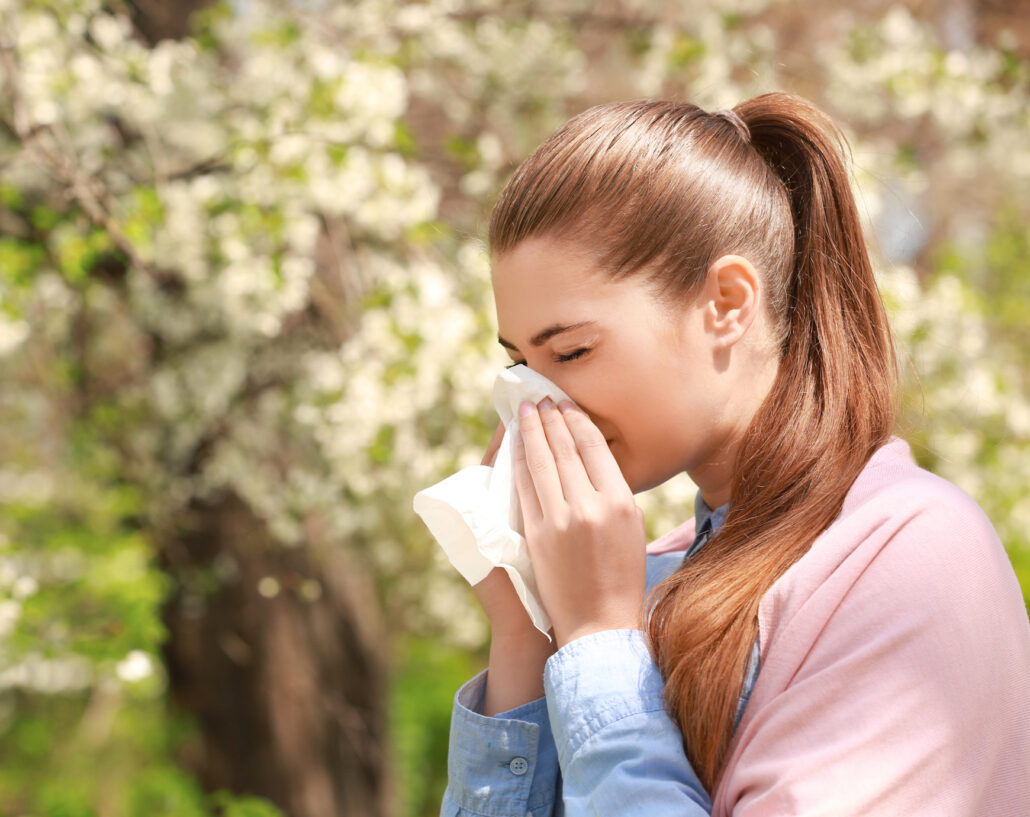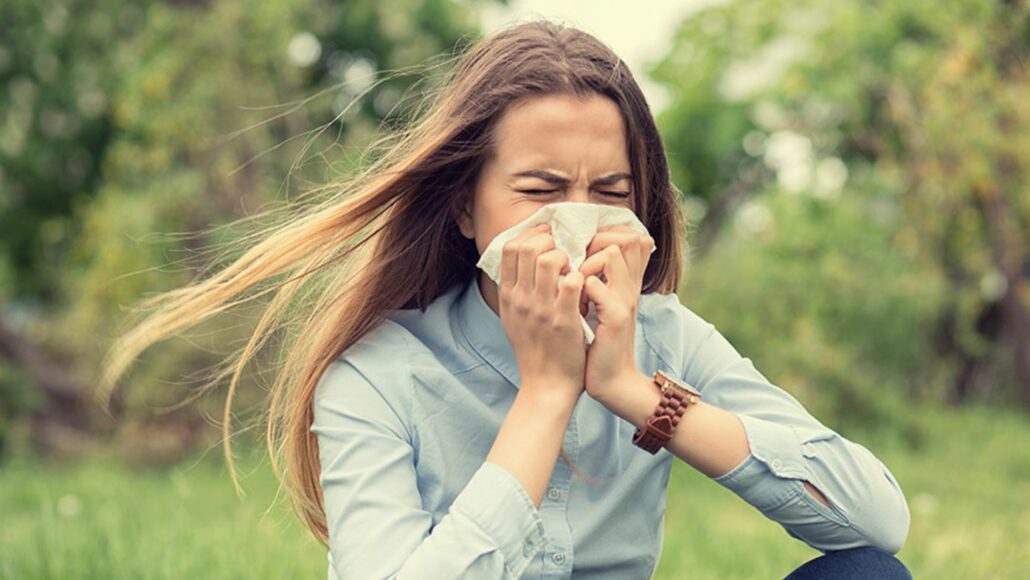Climate Change and Allergy Seasons: The Connection
Climate change, characterized by warmer temperatures and higher carbon dioxide levels, is creating the perfect storm for pollen-producing plants. As a result, we’re seeing longer and more intense pollen seasons. It’s like a concert where the music keeps getting louder, and the concert itself lasts longer. The music, in this case, is the pollen, and those of us with allergies are the unwilling audience.
The effects of climate change on our planet are far-reaching, impacting everything from global temperatures to sea levels. But one impact that often gets overlooked is the effect on our allergy seasons. As our planet warms, the timing, distribution, and intensity of pollen seasons are changing, leading to what some have termed “pollen tsunamis.” These intense pollen stations can wreak havoc on allergy sufferers, leading to increased discomfort and health risks.

The Role of Warmer Temperatures
With the average temperature on the rise, plants are starting to bloom earlier and for longer periods. This extended blooming period means more pollen in the air, leading to longer and more severe allergy seasons. It’s as if Mother Nature turned up the thermostat and forgot about it, causing an overproduction of pollen grains.
Warmer temperatures can also lead to changes in the types of plants that can survive in certain areas. For example, the common ragweed, a significant source of allergenic pollen, is expanding its range northward as temperatures rise. This means that even areas that previously had milder allergy seasons may start to see an increase in pollen counts.
Carbon Dioxide and Pollen Production
Higher levels of carbon dioxide in the atmosphere not only contribute to global warming but also stimulate plant growth and pollen production. This increase in pollen concentrations can exacerbate allergy symptoms for many people. It’s like adding fuel to a fire, making it burn hotter and longer.
Carbon dioxide is essentially plant food, and more of it in the atmosphere means more plant growth and more pollen production. Studies have shown that plants grown in conditions with higher levels of carbon dioxide produce more pollen than those grown in lower levels. This means that as our carbon dioxide levels continue to rise, we can expect to see an increase in pollen counts.
The Impact on Human Health

Increased exposure to pollen can lead to a rise in allergic diseases and respiratory issues. This is particularly concerning for allergy sufferers who are already vulnerable to these conditions. It’s like being in a boxing ring with a much stronger opponent, and climate change is giving that opponent an unfair advantage.
Allergic diseases, including hay fever and asthma, are among the most common chronic conditions worldwide. Symptoms can range from mild, such as sneezing and itching, to severe, such as asthma attacks that can be life-threatening. The increase in pollen due to climate change means that more people are being exposed to these allergens, and those with allergies are suffering more severe symptoms.
Asthma Attacks and Respiratory Diseases
The increase in airborne pollen can trigger asthma attacks and other respiratory diseases. This is a significant public health concern, as these conditions can severely impact the quality of life for those affected. It’s like a domino effect, with one piece knocking over the next, leading to a cascade of health issues.
Asthma, a condition that affects the respiratory tract, can be particularly dangerous. Asthma attacks can be triggered by a variety of factors, including exposure to allergens like pollen. During an asthma attack, the airways narrow and produce extra mucus, making it difficult to breathe. In severe cases, this can be life-threatening. As pollen counts rise due to climate change, we can expect to see an increase in asthma attacks and other respiratory issues.
Air Quality and Respiratory Health
Poor air quality, coupled with increased pollen exposure, can lead to a rise in respiratory symptoms. This combination can be particularly harmful to individuals with pre-existing respiratory conditions. It’s like being stuck in a room with poor ventilation, making it harder to breathe.
Air pollution can exacerbate the effects of pollen on the respiratory system. Particles from air pollution can irritate the lungs and can even carry pollen grains deeper into the respiratory tract. This can lead to more severe allergy symptoms and can increase the risk of asthma attacks and other respiratory issues.

Greenhouse Gas Emissions and Air Pollution
Air pollution and greenhouse gas emissions contribute to climate change, which in turn affects pollen seasons. By reducing these emissions, we can mitigate the impacts of climate change and potentially alleviate some of the severity of seasonal allergies. It’s like turning down the volume on that concert we talked about earlier, giving our ears (or in this case, our noses and respiratory tracts) a much-needed break.
Greenhouse gases, including carbon dioxide, are the primary drivers of climate change. These gases trap heat in our atmosphere, leading to global warming. As we’ve discussed, this warming has a variety of effects on our environment, including longer and more intense pollen seasons. By reducing our greenhouse gas emissions, we can help to mitigate these effects.
The Future of Allergy Seasons
Looking forward, it’s clear that without intervention, allergy seasons will continue to worsen. Epidemiological studies suggest that this could have far-reaching implications for public health. It’s like looking into a crystal ball and seeing a future that we need to work hard to prevent.
As our climate continues to change, we can expect to see shifts in the timing, distribution, and intensity of pollen seasons. These changes could lead to increases in allergic diseases and related health issues. However, by taking action to reduce greenhouse gas emissions and improve air quality, we can help to mitigate these effects.
Mitigating the Effects
While the situation may seem dire, there are steps we can take to mitigate the effects of climate change on allergy seasons. These include reducing greenhouse gas emissions, improving air quality, and developing better treatments for allergy sufferers. It’s like steering a ship away from an iceberg. The task may be daunting, but it’s not impossible.
There are many ways that we can reduce our greenhouse gas emissions, from large-scale changes like transitioning to renewable energy sources to smaller actions like driving less and reducing, reusing, and recycling. Improving air quality can involve regulations to reduce emissions from factories and vehicles, as well as individual actions like planting trees and reducing the use of harmful chemicals. On the medical side, research into new treatments for allergies and asthma can help to alleviate symptoms and improve the quality of life for those affected.
Conclusion
Climate change is more than just a global warming issue; it’s a public health issue that’s hitting us where it hurts – in our sinuses. By understanding the connection between climate change and allergy seasons, we can take steps to protect our health and the health of future generations.
Why Choose Our Specialists?
- Dr. Daniel G. Becker, Founder and Medical Director of The Penn Medicine Becker ENT & Allergy Center, is a highly trained, board-certified specialist who graduated magna cum laude from Harvard College in 1986.
- Dr. Samuel S. Becker, Director of Rhinology at The Penn Medicine Becker ENT & Allergy Center, is a highly trained, board-certified specialist who graduated from Amherst College in 1991 and attended medical school at the University of California San Francisco.
- Dr. Kenneth Rosenstein is a highly trained, board-certified otolaryngologist who attended medical school at Mcgill University, and completed his residency training at the prestigious New York Eye and Ear Infirmary.
- Dr. Naomi Gregory is a highly trained, board-certified otolaryngologist who specializes in the diagnosis and treatment of diseases of the ear, nose, and throat. Dr. Gregory completed medical school at the Philadelphia College of Osteopathic Medicine in Philadelphia PA.
- Dr. Michael Lupa, MD is a highly trained, board-certified otolaryngologist with additional training in sinus surgery and allergy treatment as well as advanced skull base surgery. He studied Biology at Tufts University and went on to complete medical school at Case Western University School of Medicine in Cleveland, Ohio.
- Dr. Robert Mignone is a highly trained, board-certified otolaryngologist-head and neck surgeon who attended medical school at New York College of Osteopathic Medicine.
- Dr. Aubrey McCullough is a highly trained otolaryngologist, facial plastic and head and neck surgeon who completed medical school at Midwestern University Arizona College of Osteopathic Medicine.
- Dr. Luke Kim is an otolaryngologist who specializes in the diagnosis, medical management, and surgical treatment of diseases of the ear, nose, and throat. Dr. Kim graduated with honors and with distinction from Cornell University and completed his medical studies at the Perelman School of Medicine at the University of Pennsylvania.

